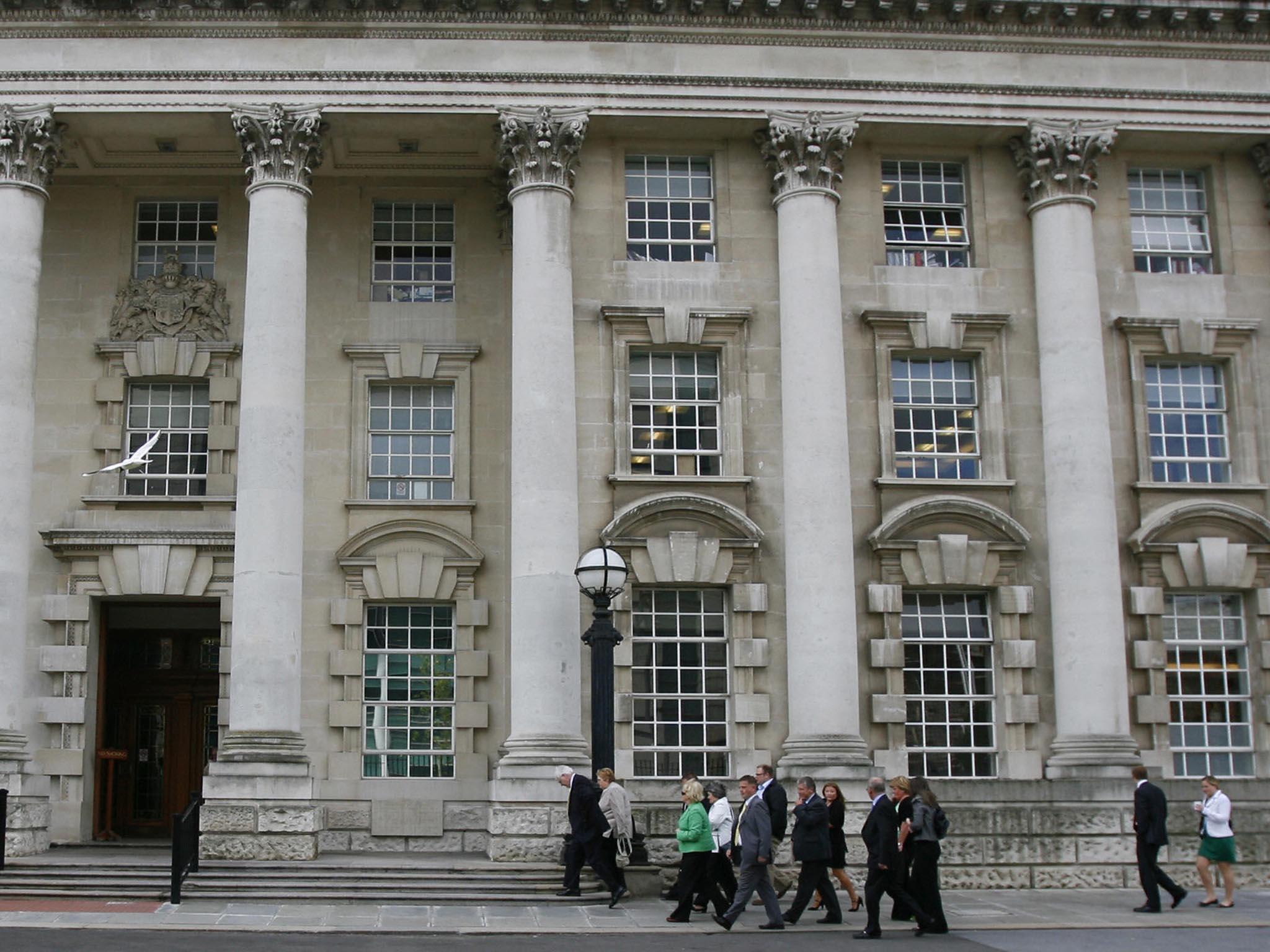Your support helps us to tell the story
From reproductive rights to climate change to Big Tech, The Independent is on the ground when the story is developing. Whether it's investigating the financials of Elon Musk's pro-Trump PAC or producing our latest documentary, 'The A Word', which shines a light on the American women fighting for reproductive rights, we know how important it is to parse out the facts from the messaging.
At such a critical moment in US history, we need reporters on the ground. Your donation allows us to keep sending journalists to speak to both sides of the story.
The Independent is trusted by Americans across the entire political spectrum. And unlike many other quality news outlets, we choose not to lock Americans out of our reporting and analysis with paywalls. We believe quality journalism should be available to everyone, paid for by those who can afford it.
Your support makes all the difference.Northern Ireland’s High Court has rejected the first legal challenge to Theresa May’s power to push ahead with Brexit.
Those behind the case argued the Prime Minister does not alone have the right to trigger Article 50 of the Lisbon Treaty, launching Brexit talks and a two-year countdown to Britain leaving the EU.
But after several days of hearings, the court in Belfast threw out the case brought by a cross-community group of politicians and human rights campaigners.
Mr Justice Paul Maguire said the implications for Northern Ireland were still too uncertain to rule in its favour, adding: “While the wind of change may be about to blow, the precise direction in which it will blow cannot yet be determined.
“So there is a level of uncertainty, as evidenced by the discussion about how the Northern Ireland land border with Ireland was affected by withdrawal from the EU.”
He added: “In respect of all issues, the court dismissed the applications.”
Lawyers behind the case tried to argue that decision-makers at Northern Ireland’s devolved Stormont Assembly could veto Brexit, assert influence over triggering Article 50 and protect peace process guarantees enshrined in the 1998 Good Friday Agreement, which largely ended republican and loyalist violence.
But Northern Ireland’s senior legal adviser, attorney general John Larkin, told the court that nothing in the 1998 agreement had been affected by Brexit, adding that there were no substantive obligations that required continued membership of the EU.
A barrister for the UK Government said no court could block the will of the people as expressed in the 23 June referendum.
The judge said it was difficult to see how the court could overlook the fact that the UK Parliament had retained the ability to legislate for Northern Ireland without any special procedure.
He said this power of the Prime Minister's was not one in which the court could intervene: “Any suggestion that a legitimate expectation can overwhelm the structure of the legislative scheme is not viable.”
Some 56 per cent of Northern Irish voters backed Remain, but some unionist-dominated areas supported Leave. The largest party in Northern Ireland, the Democratic Unionists, campaigned for an exit.
In London, an investment manager and hairdresser are taking legal action opposing the right of the Government to trigger Article 50 without a vote in Parliament.

Join our commenting forum
Join thought-provoking conversations, follow other Independent readers and see their replies
Comments